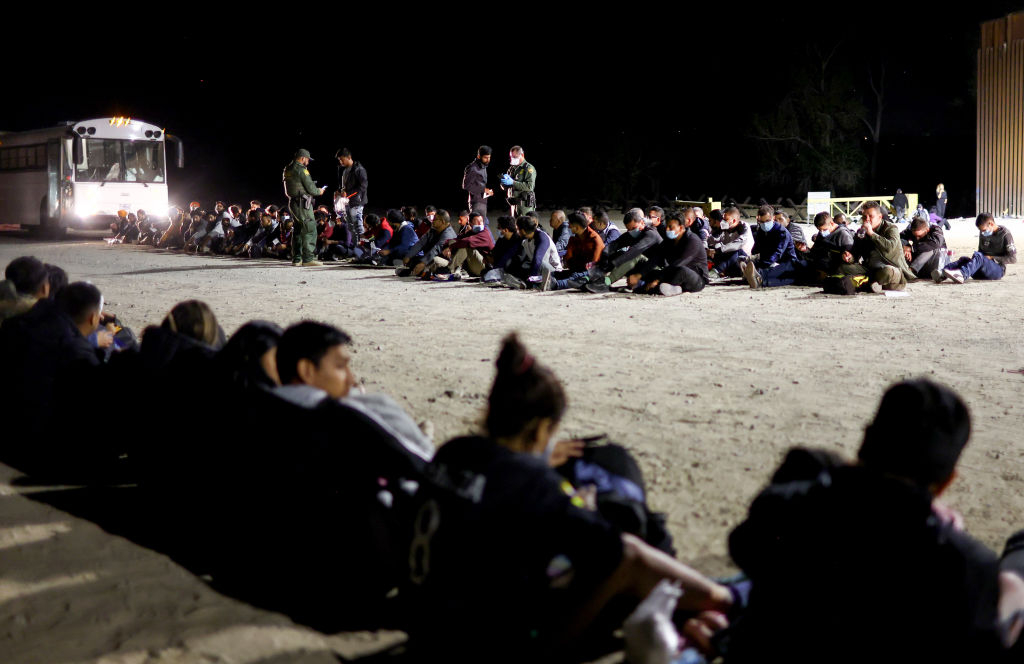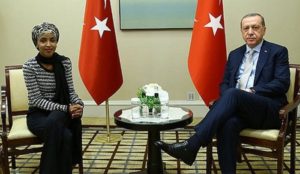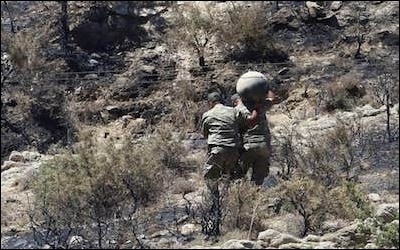by Bassam Tawil
Abbas and his old guard officials are evidently hoping that the US and international community will continue pouring millions of dollars on them without holding them to account....
- By boycotting the conference in Bahrain, in fact, Palestinian leaders had already sent a message to the world that they would rather see their people continue to suffer economic hardship than receive billions of dollars in aid.... Rather than spitting in the faces of businessmen, Palestinian leaders should be working closely with Israel and the US and any other party that wants to help the Palestinian people.
- Abbas and his old guard officials are evidently hoping that the US and international community will continue pouring millions of dollars on them without holding them to account.... They want the conflict to continue for as long as possible so that they can continue receiving funds from Americans, Europeans and others.
- Palestinian leaders want to continue blackmailing the international community into giving them unconditional and unlimited financial aid, while at the same time depriving Palestinians of any opportunity to improve their living conditions. They want their people to continue living in misery so that Abbas and his officials can blame Israel and the rest of the world for the "suffering" of the Palestinians.
- These leaders' biggest fear is that economic prosperity might divert Palestinians' attention from the fight against Israel. Like his rivals in Hamas, Abbas seems afraid that once Palestinians start enjoying the fruits of a strong economy, they will stop thinking of killing Israelis or abandon the Palestinian dream of destroying Israel.

Thirteen
Palestinian businessmen who defied the Palestinian Authority's call for
boycotting the recent US-led "Peace to Prosperity" economic conference
in Bahrain are now being targeted by Mahmoud Abbas's security forces in
the West Bank. Some of the businessmen have been forced to go into
hiding. Pictured: Senior White House adviser Jared Kushner speaks at the
conference about boosting the Palestinian economy, reducing
unemployment and improving Palestinian living conditions, on June 25,
2019. (Image source: Bahrain News Agency)
|
The Palestinian Authority's crackdown on Palestinian businessmen who participated in the recent US-led "Peace to Prosperity" economic conference in Bahrain signals strongly how Palestinian leaders act directly against the interests of their own people.
Even more worrying is the message that this crackdown sends to the Palestinian public: anyone who dares to work with US President Donald Trump's administration will be denounced as a traitor and collaborator with the "enemies" of the Palestinians: the US and Israel.
Thirteen Palestinian businessmen who defied the Palestinian Authority's call for boycotting the Bahrain conference are now being targeted by Mahmoud Abbas's security forces in the West Bank. Some of the businessmen have been forced to go into hiding, while others are keeping a low profile after receiving threats from many Palestinian groups, including Abbas's ruling Fatah faction.
Worse, the families of the Palestinian businessmen have been forced publicly to "disown" their sons out of fear that they, too, will be targeted by Palestinian activists and security forces.
The campaign of intimidation against the businessmen who attended the Bahrain conference began weeks before they headed to the Bahraini capital of Manama. Palestinian social media users launched an online campaign to shame the businessmen, which included publishing their names and photos on several sites. Spearheaded by Fatah, the campaign organizers warned that participation in the Bahrain conference was tantamount to treason.
Despite the threats, Palestinian businessman Ashraf Jabari, who belongs to a large clan from the West Bank city of Hebron, headed a 13-member delegation of business leaders that traveled to Bahrain. The delegation was part of a group called Palestinian Business Network, which has no political affiliations.
Jabari and his friends say they did not go to Bahrain as representatives of the Palestinian Authority or any Palestinian faction. Instead, they add, they went to the conference after receiving personal invitations from the US administration.
The Palestinian businessmen's participation in the conference enraged Abbas and many Palestinians, who called for punishing the attendees and putting them on trial for betraying the Palestinian people and cause.
It did not take long for Abbas to order his security forces to chase and arrest the businessmen. Palestinian security forces moved to arrest them less than 24 hours after they returned to their homes in the West Bank.
The Palestinian security officers succeeded, however, in apprehending only a single businessman, Saleh Abu Mayaleh, from Hebron. Abu Mayaleh was arrested during a raid on his home. The following day, the Palestinian Authority, under pressure from the US administration, was forced to release him, an act that drew sharp criticism from many Palestinians.
A second businessman from Hebron, Ashraf Ghanem, said he managed to flee his home before the Palestinian security forces arrived. Ghanem said he was injured during the escape. Fifty security officers, he added raided his home and confiscated his passport and credit cards. Ghanem, owner of a furniture business, said he has been forced to go into hiding and fears for his life.
The Palestinian security forces also raided the homes of several other businessmen who attended the Bahrain conference, but did not find them. They, too, have apparently been forced to go into hiding.
The businessmen did not go to Bahrain to discuss political issues. None of them is even known to be affiliated with any Palestinian political faction. They traveled to Bahrain, it would seem, to discuss ways of boosting the Palestinian economy and improving the living conditions of their people. They presumably went to the conference to discuss economic projects -- as any normal businessman would do.
By cracking down on these businessmen, the Palestinian Authority leadership is making clear that improving the economy is that the last thing it has on its mind. By boycotting the conference in Bahrain, in fact, Palestinian leaders had already sent a message to the world that they would rather see their people continue to suffer economic hardship than receive billions of dollars in aid.
It is also worth noting that, by labelling the businessmen as traitors and collaborators, Palestinian leaders are giving a green light to their people to kill Jabari and his friends for attending the conference.
The Palestinian Authority's highest priority should be fighting Hamas and preventing it from extending its control from the Gaza Strip to the West Bank. The Palestinian Authority's highest priority should also be combating financial and administrative corruption and seeking ways to boost the Palestinian economy by solving issues related to soaring unemployment and poverty. Rather than spitting in the faces of businessmen, Palestinian leaders should be working closely with Israel and the US and any other party that wants to help the Palestinian people.
Instead, Abbas and his senior officials in the West Bank understand their mandate as intimidating and incarcerating businessmen for going to an economic conference whose main goal was to help the Palestinian people.
What message is Abbas sending to his people when he orders 50 intelligence officers to raid and search the homes of a businessman whose only crime was that he accepted a personal invitation to attend an economic conference? Why was there a need to enter the homes of these businessmen and their families in the middle of the night? Why do Palestinian businessmen need to become terrified fugitives for discussing projects that would benefit the Palestinian people?
How has the international community, specifically the Europeans, responded to Abbas's crackdown on the businessmen? Where are the EU and UN condemnations, so free and easy when anything to do with Israel is at hand? Why was the US administration the only party to speak out in defense of the businessmen?
The answer is clear and simple: the businessmen were not targeted by Israel. Instead, they are being hunted down by their very own leaders.
A few questions arise: If the Palestinian Authority truly believes the businessmen who attended the conference in Bahrain to be traitors, then why are the Palestinian security forces in the West Bank continuing to conduct security coordination with the Israel Defense Forces? If the Palestinian Authority truly believes that the US administration is hostile towards the Palestinians, why is the Palestinian Authority continuing to denounce the Americans for cutting financial aid to Palestinians?
Under the willfully unwatchful eyes of the international community, the Palestinian leaders continue their longstanding double-dealing. On the one hand, they denounce Trump and his senior officials, specifically US Ambassador to Israel David Friedman and presidential advisers Jared Kushner and Jason Greenblatt, by dubbing them "Zionist settlers." On the other hand, the Palestinian leaders demand that the same US open its pocketbook wide to Palestinians. For how long will the Palestinian leaders choose to cheat their own people by insisting on playing with a marked deck?
Abbas and his old guard officials are evidently hoping that the US and international community will continue pouring millions of dollars on them without holding them to account. They want the conflict to continue for as long as possible so that they can continue receiving funds from Americans, Europeans and others.
Palestinian leaders want to continue blackmailing the international community into giving them unconditional and unlimited financial aid, while at the same time depriving Palestinians of any opportunity to improve their living conditions. They want their people to continue living in misery so that Abbas and his officials can blame Israel and the rest of the world for the "suffering" of the Palestinians.
Like his rivals in Hamas, Abbas is afraid that economic prosperity might soften Palestinians' attitudes towards Israel. Abbas and his associates seem afraid that once Palestinians start enjoying the fruits of a strong economy, they will stop thinking of killing Israelis or abandon the Palestinian dream of destroying Israel.
Bassam Tawill is an Arab Muslim based in the Middle East.
Source: https://www.gatestoneinstitute.org/14488/palestinian-war-on-businessmen
Follow Middle East and Terrorism on Twitter






